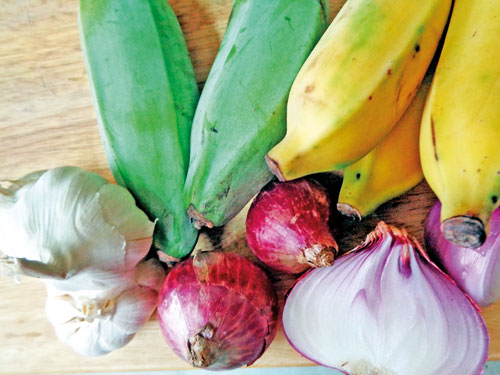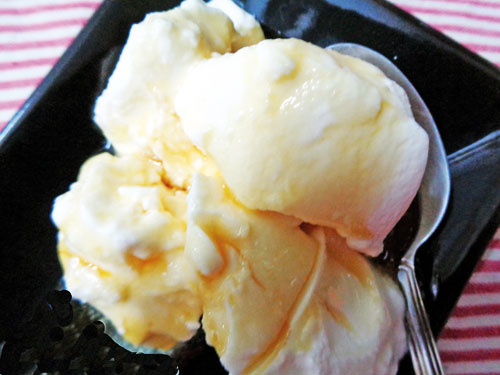Gut-friendly ‘vibrant pair’
When you are born you have none, but by the time you are two weeks old your digestive system is quickly colonized by a huge population of bacteria that will stay with you for the rest of your life. These beneficial bacteria are required to keep your intestinal tract healthy. And though we don’t really notice it these good bacteria play an oversized role in your health and can even affect your mood and behaviour.
 If they become depleted like at times you take a course of antibiotics, potentially harmful bacteria can multiply causing digestive and other health issues. So in order to maintain the good bacteria in your gut and help the microbes already there to grow you have to give them the food they like. These are specialized plant fibres that act like fertilizers and stimulate the growth of the healthy bacteria in the gut. These are called Prebiotics. Simultaneously, in order to be sure you have enough good bacteria you may have to eat them. These are called Probiotics.
If they become depleted like at times you take a course of antibiotics, potentially harmful bacteria can multiply causing digestive and other health issues. So in order to maintain the good bacteria in your gut and help the microbes already there to grow you have to give them the food they like. These are specialized plant fibres that act like fertilizers and stimulate the growth of the healthy bacteria in the gut. These are called Prebiotics. Simultaneously, in order to be sure you have enough good bacteria you may have to eat them. These are called Probiotics.
Prebiotics are natural, non-digestible food components that are linked to promoting the growth of helpful bacteria in your gut. They also help enhance immunity by providing fuel for your gut bacteria. This could be beneficial in the treatment of a wide range of conditions, including viral infections, allergies, eczema and intestinal disorders. It has also been found that prebiotics enhance the absorption of minerals in the body, including magnesium, possibly iron and calcium. All of these are crucial for retaining strong bones and preventing fractures and osteoporosis.
 Prebiotics in your diet
Prebiotics in your diet
Prebiotics are found in many fruits and vegetables, especially those that contain complex carbohydrates, such as fibre and resistant starch. These carbs are not digestible by your body, so they pass through the digestive system to become food for the bacteria and other microbes. One of the most realistic and delicious ways to add prebiotics to your meals is by including raw or cooked onions. They give plenty of flavours to your food, provide immune-enhancing antioxidants, contain dietary fibre and a type of good bacteria that fights indigestion.
Raw garlic is another easy prebiotic ingredient that offers loads of benefits. You can use raw garlic in tomato salads, dips and spreads. Bananas that are not fully ripe and ash plantains contain high concentrations of resistant starch and prebiotics. Use bananas that are still greenish instead of bright yellow and spotted. Other good prebiotic foods are asparagus, leeks, raw honey, greens, whole wheat, spinach, beans, oats and soybeans. Not only do these foods supply a concentrated amount of prebiotics, but they are also rich in other important vitamins, minerals and antioxidants that can help optimize your health.

Prebiotic food
Probiotics
Probiotics are the “good” bacteria or live cultures, just like those naturally found in your gut. These active cultures help change or repopulate intestinal bacteria to balance gut flora. This functional component may boost immunity and overall health, especially gastrointestinal health. For instance, probiotics have been used for management of irritable bowel syndrome symptoms. Probiotics are usually specific strains of bacteria that directly add to the population of healthy microbes in your gut. If you don’t have enough probiotics, the side effects can include: digestive disorders, skin issues, candida, autoimmune disease, and frequent colds and flus.
Probiotics in your diet
Possibly the most popular probiotic foods are curd and yoghurt made by fermenting milk with different bacteria, which are left in the final product. Other bacteria-fermented foods, such as sauerkraut made from fermented cabbage, apple cider vinegar, salted gherkin pickles, brine cured olives, tempeh (made from cooked and fermented soybeans) and miso (a thick paste-like traditional Japanese seasoning made from fermented soy beans) are also good probiotics. Apple cider vinegar is a nice salad dressing and if you have been to a Japanese restaurant, you may have had their miso soup.
In Sri Lanka traditional fermented food include, hoppers and thosai where the growth of the indigenous flora is promoted by mixing water or coconut water to the rice flour dough or the black gram and leaving it overnight. However this fermented food is cooked before consumption and the microbes that helped in the fermentation are inactivated.

Probiotic food
Care and feeding of probiotics
People can be deficient in probiotics as they can be killed off by antibiotics, pesticides in food and beverages; fluoride and chlorine in drinking water; and other toxins. So make sure you eat probiotic-rich, fermented foods.
Dietary supplements
Probiotics and prebiotics are available as dietary supplements in many forms and flavours. However, it may not be necessary to use these special products as these “nutrition boosters” are natural ingredients in everyday food. In case you are unable to meet your needs through food alone, you may want to consider supplements but be sure to buy reputed products with high-quality standards.
What makes prebiotics and probiotics the “Vibrant Pair”
Ultimately, prebiotics, or “good” bacteria promoters, and probiotics, or “good” bacteria, work together synergistically. In other words, prebiotics are breakfast, lunch and dinner for probiotics, which restores and can improve gastrointestinal health. Products that combine these together are called synbiotics. As such when you eat curd or yoghurt with honey, bananas on top of yoghurt, and oats with yoghurt or a stir fry of beans or asparagus, with tempeh you have a win-win situation. So the bottom line, incorporate foods containing both prebiotics and probiotics into your diet and help in creating a healthier you.


